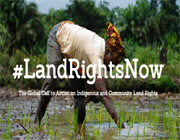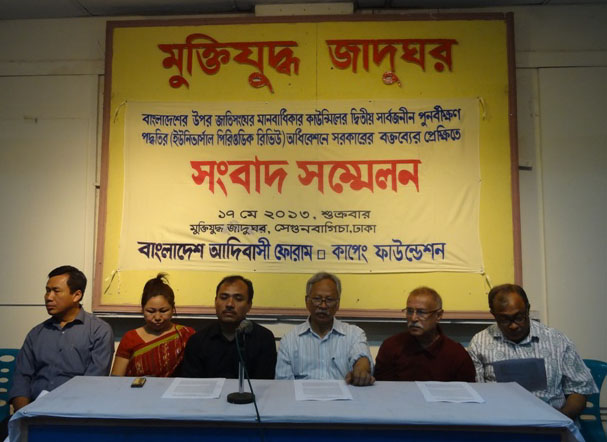
Indigenous leaders of Bangladesh Indigenous Peoples Forum (BIPF) and Kapaeeng Foundation (KF) urged the government to take effective measures to implement CHT Accord and to protect human rights of indigenous peoples as per its commitment in the second cycle of Universal Periodic Review of the UN Human Rights Council on Bangladesh held on 29 April 2013 in Geneva.
The BIPF and KF also alleged that the government provided incomplete and inaccurate information on implementation of CHT and constitutional recognition of indigenous peoples to the UPR session. However, leaders of these rights organisations were welcoming government of Bangladesh for its commitment for full implementation of CHT Accord and for expressing positive responses to implement the ILO Convention No. 107 on Indigenous and Tribal Populations including effective participation in the consultations process for the promotion of the ILO Convention No. 169. They also expressed their concerns saying that despites committed to implement the CHT Accord in the first cycle of the UPR in 2009, the government did not take any significant step to do so.
Indigenous leaders expressed their opinions at a press conference on UPR organised on 17 May 2013 at 11.00 am at the Liberation War Museum, Dhaka. General Secretary of BIPF Mr. Sanjeeb Drong read out a written statement of BIPF and KF while advisor of KF and Vice Chancellor of ASA University Dr. Dalem Chandra Barman, indigenous rights activist Mr. Mangal Kumar Chakma, Vice Chairperson of KF Ms. Chaitali Tripura and Moordinator Mong Sing Neo, human rights defender Mr. Noor Khan Liton and eminent journalist Saleem Samad were present at the press conference.
Dr. Dalem Chandra Barman said that the government continues to express its commitment for implementation of the CHT Accord. He urged government to take effective measures for real implementation of the Accord. He also urged international community to play positive roles in implementing the commitment of the government during the UPR session.
The human rights situation of Bangladesh was reviewed at the Human Rights Council of United Nations under the Universal Periodic Review (UPR) mechanism on 29 April 2013. Along with the state report from Bangladesh, 27 alternative reports from various NGOs have been submitted. Coalition of Indigenous Peoples’ Organisations, a coalition of 17 indigenous peoples’ organisations working for promotion and protection of human rights of indigenous peoples in Bangladesh, was one of these organisations submitted alternative report to the UN Human Rights Council. Among others, general secretary of BIPF Mr. Sanjeeb Drong, assistant general secretary of BIPF Mr. Binota Moy Dhamai, former convenor of KF Advocate Bidhayak Chakma and representative of indigenous women Ms. Uchacha A Chak attended the review session.
In the written statement, Sanjeeb Drong thanked those member-states who delivered strong statement for implementation of CHT Accord and the promotion of the human rights situation of indigenous peoples. Mr. Drong said that though member-states welcomed government of Bangladesh for commitment to implement the CHT Accord and to protect human rights of indigenous peoples, however, side by side, expressed their concern for failing to fulfill its commitment made at first cycle of UPR in 2009.
In the written statement, Sanjeeb Dring also opined that the government’s statement “the 15th amendment of the Constitution has granted for the first time Constitutional recognition to our 48 ethnic groups and tribal communities” is not fully true. There was no single name of the 48 ethnic groups in the 15th amendment of the Constitution. There were names of 27 ethnic groups in the Small Ethnic Group Cultural Institutions Act 2010. Despite popular demand to include rest of the ethnic groups, the government ignored this demand. Hence, those ethnic groups who were excluded from the list of Small Ethnic Group Cultural Institutions Act 2010 have been suffering in all aspects. Indigenous leaders also rejected the terms “tribes, minor races, ethnic sects and communities” mentioned in the 15th amendment of the Constitution. Sanjeeb Drong also opined that the 15th amendment of the constitution, instead of guaranteeing the aforesaid demands, termed indigenous peoples as ‘Bangalees’ which undermines rights to self-identification of indigenous peoples. Government of Bangladesh fully concealed this human rights violation in its report submitted at the UPR session, Drong said.
Indigenous leaders added that though government reiterated its statement that “strong commitment to implementing the provision of the CHT Peace Accord concluded in 1997 during our previous term in office”, however, government fully failed to do so during the period of last four and half years of their tenure. The government’s commitment in this regard was nothing but leap service, indigenous leaders opined. They alleged that the government provided incomplete information on implementation of the CHT Accord in one hand and on the other hand concealed many unimplemented issues.
The government statement “transfer of two thirds of the departments out of the mandated 33 to the three Hill District Councils” was not also fully true. On the other hand, government stated that “the amendment to certain provisions of the CHT Land Disputes Resolution Commission Act, 2001 has reached the final stage in consultation with the CHT Regional Council and is expected to be placed before the Cabinet soon”. However, indigenous leaders alleged that the minutes (resolution) of the inter-ministerial meeting held on 30 July 2012, where 13-point proposals for amendment of the CHT Land Commission Act were finally adopted, is yet to be prepared, though 9 months after convening the meeting have passed. As it has always been, this government also let the three Hill District Councils (HDCs) and the CHT Regional Council (CHTRC) remains dysfunctional. No measures leading to holding of elections in the HDCs and CHTRC have so far been initiated and to that end the Election Rules and Electoral Rolls Rules also have not yet been formulated as per the terms of the Accord and the subsequent laws, the HDC Acts. These issues were fully concealed by the government in the UPR session, said indigenous leaders.
Indigenous leaders, however, expressed their hopes that the government would come forward to promote and protect human rights of indigenous peoples, to implement the CHT Accord and to continue the support of promotional activities of the ILO Convention No. 107 and to ratify the ILO Convention No. 169.
Please CLICK HERE to find press statement in Bangla.



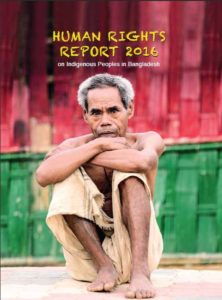
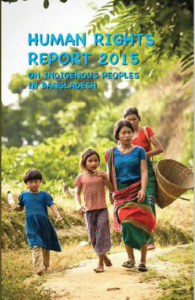
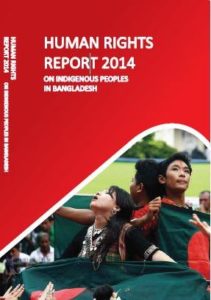
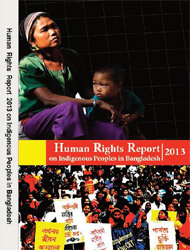
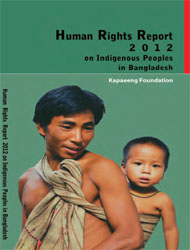
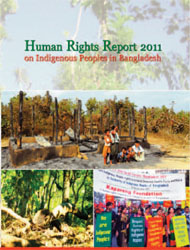
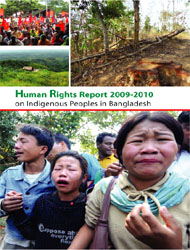

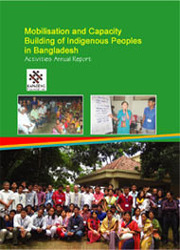



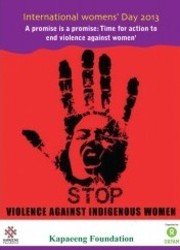
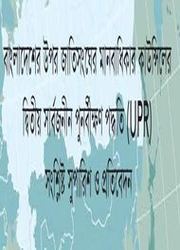
 May 18th, 2013
May 18th, 2013  KapaeengUser
KapaeengUser  Posted in
Posted in 